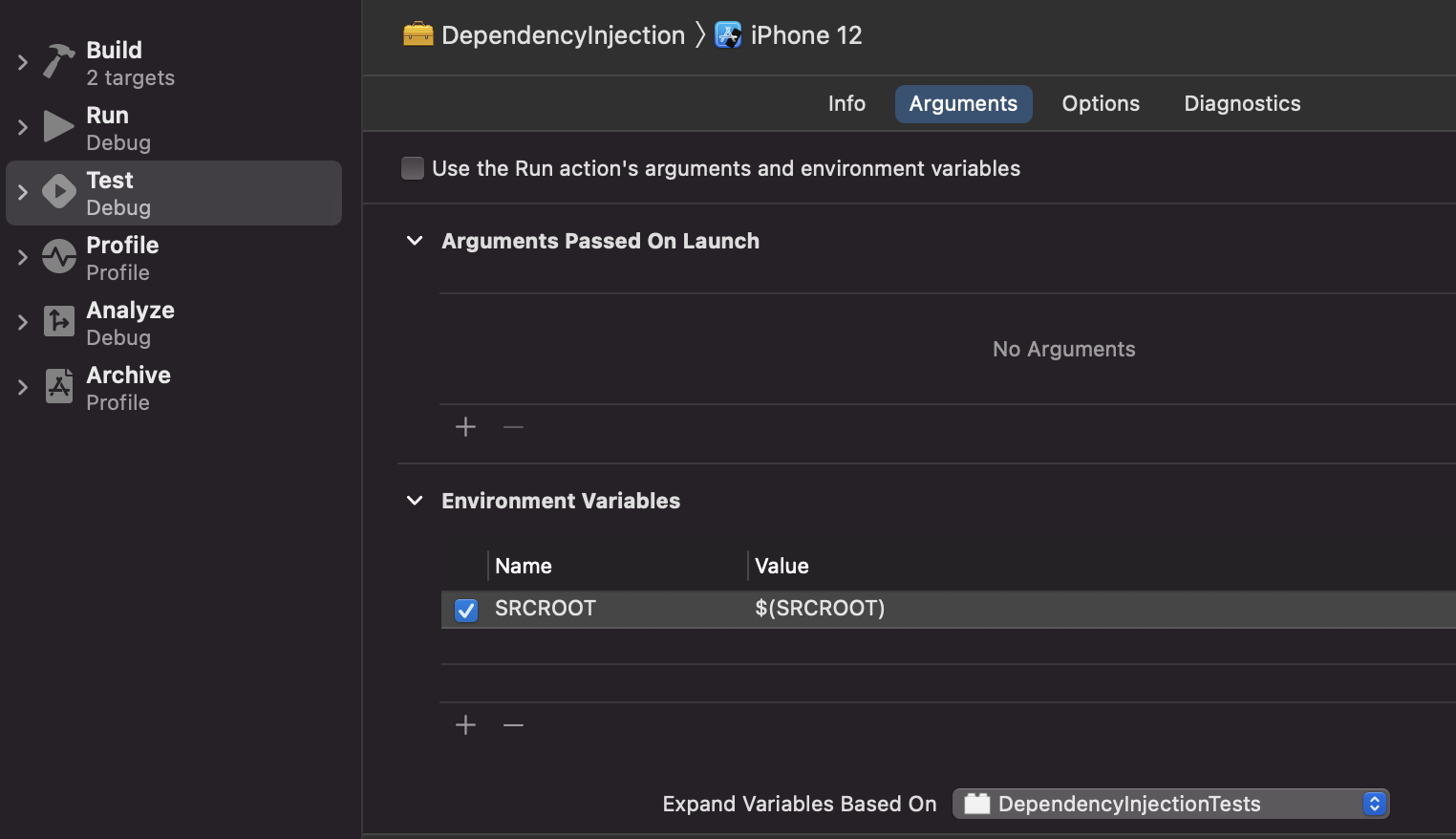Supporting relative paths: XCTest failures in Xcode
If you build your iOS app with an alternate build system such as bazel, it's likely that you use relative paths, instead of absolute paths, for compilation.
Specifically, when building swift code, Xcode calls the compiler with something like:
swiftc [ARGS] /path/to/srcroot/path/to/file1.swift /path/to/srcroot/path/to/file2.swift
Where bazel will call the compiler with something like:
swiftc [ARGS] path/to/file1.swift path/to/file2.swift
Normally, this difference is inconsequential, both compilations will result in a similar enough output. So, the question is: Why would you pick one over the other? For bazel, the answer lies in its core feature of "hermeticity". In bazel's case, being hermetic means that given the same inputs you always produce the same outputs. This means that regardless of what machine you're building on, or what directory your source is cloned in, the results should be the same. Because, those details aren't considered important inputs in the build.
Unfortunately, in a few places, Xcode relies on paths being absolute.
Today, we'll look at how Xcode reports test failures in the UI.
Specifically the underlying
XCTIssue
that XCTest creates is expected to be instantiated with an absolute
path. This absolute path is populated from the #filePath (previously
#file) keyword which is supposed to reference the absolute path of
the current source file.
The first question is: How does the Swift compiler know what the
absolute path of the current file is? It's easy when Xcode passes an
absolute path to the compiler. But, what if you pass a relative path? In
this case, the Swift compiler uses the directory passed with the
-working-directory argument to make the path absolute. It turns out if
you don't pass this argument, the compiler has no choice but to use the
relative path. This means the #filePath keyword ends up translating to
a relative path, which means the XCTIssue is created with a relative
path.
With relative paths when you run your tests in Xcode and they fail, clicking the failure in the issue navigator doesn't do anything. But, it's supposed to jump you to the test case that failed (FB8451256, FB8454623).
So, how do we fix this? Luckily, we know the core issue is XCTIssue is
created with a relative path. Since XCTIssue instances are created as
part of our process, we can
swizzle it to fix this.
Looking at the underlying XCTSourceCodeLocation
docs,
we can see there are 2 initializers we're potentially interested in.
Setting some quick breakpoints we can see that XCTIssue goes through
the init(fileURL:lineNumber:) initializer. When we inspect the
argument it receives in the debugger, we can see it's the relative path
we passed to the compiler. Knowing this, we can surmise that by
swizzling the initializer, and make the argument an absolute path, we
can satisfy Xcode's requirement. So, what path do we use? Using Xcode's
scheme environment variables, we can pass Xcode's SRCROOT through an
environment variable named the same thing:

Make sure to have the "Expand Variables Based On" dropdown set to some
target (FB8454879) or the $(SRCROOT) string will be passed through
literally.
Now, for the swizzling:
import Foundation
import XCTest
// NOTE: This path has to start with a / for fileURLWithPath to resolve it correctly as an absolute path
public let kSourceRoot = ProcessInfo.processInfo.environment["SRCROOT"]!
private func remapFileURL(_ fileURL: URL) -> URL {
if fileURL.path.hasPrefix(kSourceRoot) {
return fileURL
}
return URL(fileURLWithPath: "\(kSourceRoot)/\(fileURL.relativePath)")
}
private extension XCTSourceCodeLocation {
@objc
convenience init(initWithRelativeFileURL relativeURL: URL, lineNumber: Int) {
// NOTE: This call is not recursive because of swizzling
self.init(initWithRelativeFileURL: remapFileURL(relativeURL), lineNumber: lineNumber)
}
}
func swizzleXCTSourceCodeLocationIfNeeded() {
// NOTE: Make sure our "Expand Variables Based On" is set correctly
if kSourceRoot == "$(SRCROOT)" {
fatalError("Got unsubstituted SRCROOT")
}
let originalSelector = #selector(XCTSourceCodeLocation.init(fileURL:lineNumber:))
let swizzledSelector = #selector(XCTSourceCodeLocation.init(initWithRelativeFileURL:lineNumber:))
guard let originalMethod = class_getInstanceMethod(XCTSourceCodeLocation.self, originalSelector),
let swizzledMethod = class_getInstanceMethod(XCTSourceCodeLocation.self, swizzledSelector) else
{
fatalError("Failed to swizzle XCTSourceCodeLocation")
}
method_exchangeImplementations(originalMethod, swizzledMethod)
}
With this implementation, you need to call
swizzleXCTSourceCodeLocationIfNeeded() somewhere. Using the
NSPrincipalClass plist
key,
we can define a class that is initialized as soon as your test bundle
starts to run. This key must be set in your test bundle's plist, not any
host apps you are using for the test bundle. For bazel this means on the
infoplists key of your ios_unit_test rule. We can define a small
class to call our swizzling code:
import ObjectiveC
final class UnitTestMain: NSObject {
override init() {
super.init()
swizzleXCTSourceCodeLocationIfNeeded()
}
}
Disclaimer: this relies on a lot of implementation details in Xcode which might break in the future. You should avoid this if possible.